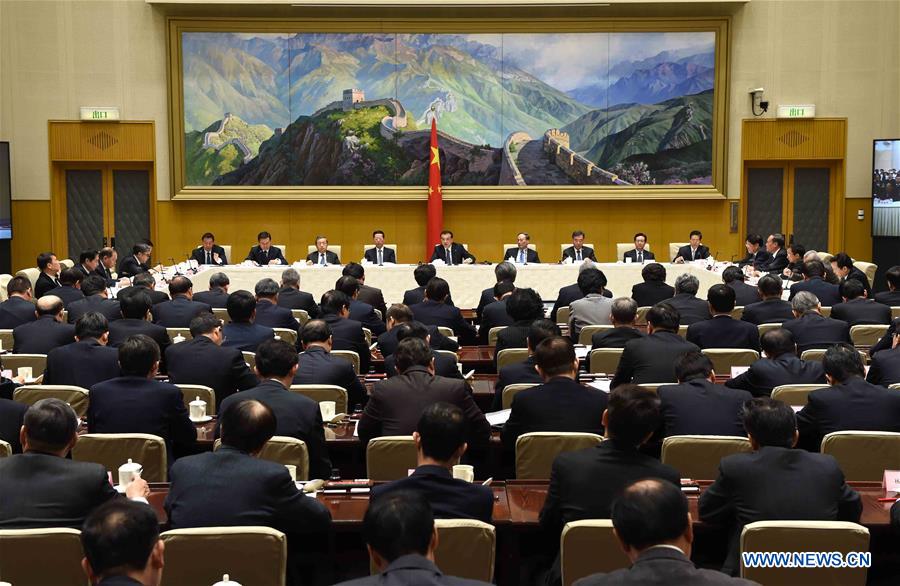BEIJING, March 28 (Xinhua) -- The Chinese government will further transform its functions, improve accountability mechanisms and strengthen supervision over key sectors plagued by corruption, Premier Li Keqiang said Monday.

BEIJING, March 28, 2016 (Xinhua) -- Chinese Premier Li Keqiang speaks during the fourth meeting on clean governance in Beijing, capital of China, March 28, 2016. (Xinhua/Rao Aimin)
Li made the remarks during the fourth meeting on clean governance, putting forward requirements for anti-corruption work in 2016.
The premier said significant results were achieved in anti-graft work last year, with continued efforts made by governments at all levels on rectifying workstyles, devolving powers, managing public assets and limiting misuse of power.
However, corruption still exists in key sectors as anti-graft mechanisms remain weak in some government agencies, state-owned enterprises, public institutions and financial institutions, Li said.
Li called for further crackdown on corruption in key sectors to ensure economic growth and social stability amid a more challenging situation of development in China this year.
Chinese government will slash more administrative items this year and increase openness, the premier said.
Li said the State Council, China's cabinet, will continue inspections of various departments and local governments this year and hold officials accountable if they are reluctant to rectify problems.
The premier also proposed an electronic system to make public resource trading more transparent.
Financial supervision and regulation should be improved to prevent violations and corruption in the sector, Li said.
The meeting was attended by vice premiers Zhang Gaoli, Wang Yang and Ma Kai. Wang Qishan, secretary of the Central Commission for Discipline Inspection of the Communist Party of China, attended the meeting on invitation.

BEIJING, March 28, 2016 (Xinhua) -- Chinese Premier Li Keqiang (C, rear) speaks during the fourth meeting on clean governance in Beijing, capital of China, March 28, 2016. (Xinhua/Rao Aimin)







